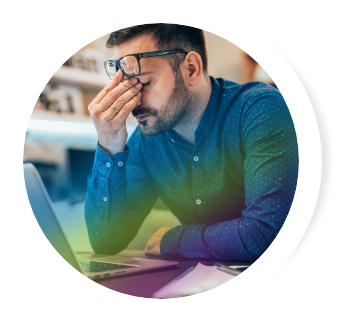Traditionally, stress is our body’s reaction to a real or perceived threat. The stress prompts us to fight or flee, getting us out of immediate danger. However, in our Western society, stress is more of a daily occurrence that comes up for a variety of reasons that are not typically things that can be fought against or from which we can run.
Whether we have too much on our task lists, major life changes, or illness in the family, our body and mind feel the pressure and become “stressed”. A little stress is normal; it motivates us to become more productive and complete tasks. However, too much prolonged stress can be overwhelming, creating problems in our relationships, work, and daily functioning.

Symptoms
Different people, in different stressful situations, may react differently. Here are some common signs and symptoms of stress:
- Avoidance of the original problem
- Difficulty concentrating
- Difficulty making decisions
- Lack of confidence and negativity
- Increased heart rate
- Muscle tenseness
- Changes in eating or sleeping patterns
- Headaches
Treatment
Some common techniques for the short-term resolution of stress can include:
- Slowing down: Often, we think that the faster we run around the more we can get done. However, trying to cram everything we wish to do in small periods of time can lead to burnout and affects the clarity of our thoughts. It is important to recognize that when we actually slow ourselves down, we often get more done, and it gets done more consistently. By slowing down, we can avoid burnout as well as stress.
- Self-care: Taking care of yourself will often lead to a decrease in stress. True self-care is doing something for yourself that you want to do and that rejuvenates your spirit, soul and body. Self-care looks different for everyone and it is important to personalize the experience.
- Relaxation: The more stressed you become, the harder it is to actually bring your body and mind back to a relaxed state. Relaxation becomes an important routine to incorporate into your life, as it brings you back to a neutral resting state and resets you for future stress. Without helping your body relax, the stress keeps compounding and chronic stress is very damaging not only for your emotional state but also for your physical state.
Content adapted with permission from Dalton Associates.
